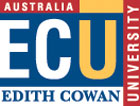Graduate Diploma of Community Paramedicine
Graduate Diploma of Community Paramedicine
Designed to provide paramedics with the necessary knowledge and skills to undertake a career in community paramedicine, working in urgent care, non-urgent care and primary healthcare settings. The course focuses on the clinical issues directly related to practice, and develops a greater depth of understanding to enhance clinical decision-making and…
Categories
COURSE DESCRIPTION
Designed to provide paramedics with the necessary knowledge and skills to undertake a career in community paramedicine, working in urgent care, non-urgent care and primary healthcare settings.
The course focuses on the clinical issues directly related to practice, and develops a greater depth of understanding to enhance clinical decision-making and critical thinking. Students will learn advanced-level clinical knowledge to apply to their daily paramedical practice, while at the same time learning advanced skills in evidence-based practice.
The combination of advanced clinical knowledge and applied research knowledge and skills provides students with the ability to continuously improve their own clinical practice, as well as impact on the organisation they are employed by and the broader Paramedicine community.
Course learning outcomes
Communicate complex medical and paramedical knowledge, research principles and methods to demonstrate an advanced level of extended care paramedicine.
Apply cognitive, technical and creative skills to investigate, evaluate and synthesise complex ideas, concepts and theories in authentic extended care Paramedicine contexts.
Use high level self-management skills to initiate, appraise and operate in complex and dynamic extended care Paramedicine professional environments.
Career Opportunities
Graduates of this program will be well-placed to take on the leadership roles within paramedicine.
Possible future job titles
Extended Care Paramedic, Advanced Care Paramedic, Community Paramedic, Specialist Paramedic, Advanced Paramedic, Site Paramedic, Industrial Medic, Industrial Paramedic, Advanced Care Practitioner, Paramedic Practitioner
REQUIREMENTS
All applicants are required to have a Bachelor’s degree in Paramedicine, or have completed a Graduate Certificate of Extended Care Paramedicine, with equivalents considered. Alternatively applicants can have equivalent prior learning including at least five years appropriate professional experience, or AHPRA Registration (Australia) or equivalent from HCPC (UK) or Paramedic Council (NZ), with equivalents considered.
Academic admission requirements (Band 8) may be satisfied through completion of one of the following:
Bachelor degree in a cognate discipline; or
Where accepted, equivalent prior learning, including at least five years relevant professional experience.
English competency requirements:
IELTS Academic: An overall band minimum score of 6.5, with no individual band less than 6.0.) (Results are typically valid for 2 years and online tests are not acceptable.)
TOEFL iBT: TOEFL iBT: 84 (with no score below 17)
TOEFL Paper-Based Test (PBT): Minimum score of 573, including Test of Written English of 5.0 or better. (Results are typically valid for only 2 years)
Pearson Test of English (PTE): PTE Academic 58, with no score less than 50 for postgraduate standard entry courses. (Results are typically valid for only 2 years)
EDUCATIONAL INSTITUTION
Edith Cowan University (ECU) is a large, multi-campus institution serving communities in Western Australia and internationally.ECU was awarded university status in 1991, but despite its relative youth, the University has a proud history of more than a century of service to education in Western Australia and is recognised for its teaching and learning, excellence in research, and partnerships with the community.We have more than 23,300 students, including around 18,500 undergraduates and 4,800 postgraduates. Approximately 3,600 international students attend the University, originating from 104 countries.We are a progressive University with courses developed through ongoing industry input, and employing lecturers who engage fully with their students. We’re a university that knows while knowledge is important, understanding comes from experience –experience that enables you to adapt what you’ve learned to whatever opportunities come your way. Because that’s when you do more than just survive in this world. You thrive in it.




